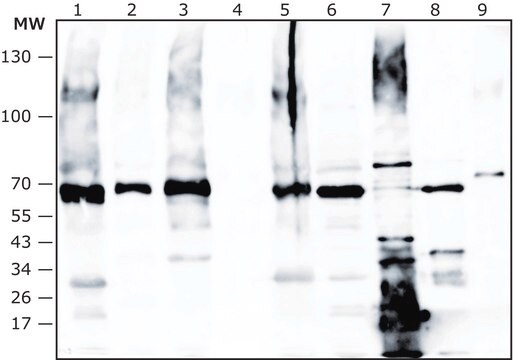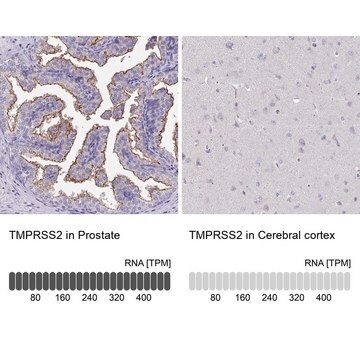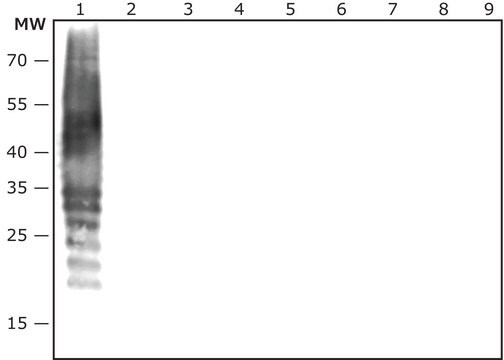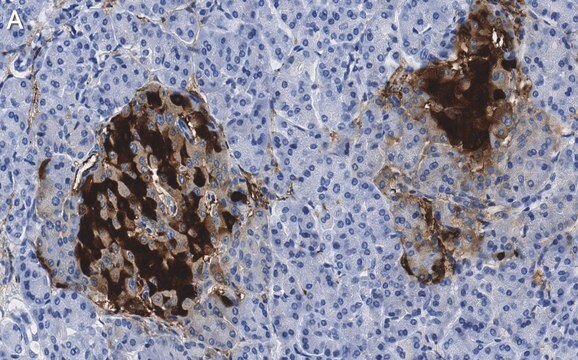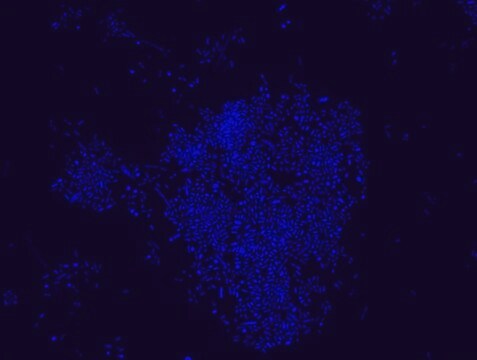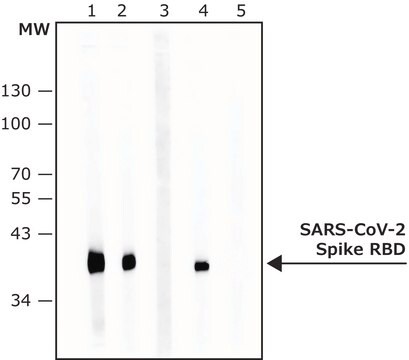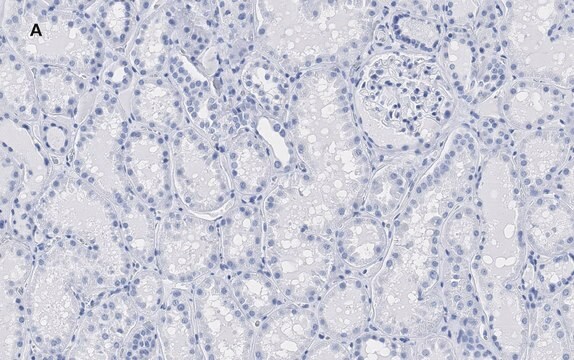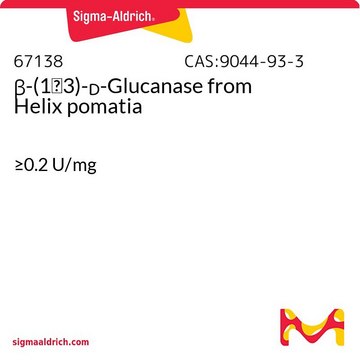SAB4200870
Anti-Akkermancia muciniphila antibody produced in rabbit
IgG fraction of antiserum
About This Item
Prodotti consigliati
Origine biologica
rabbit
Livello qualitativo
Forma dell’anticorpo
IgG fraction of antiserum
Tipo di anticorpo
primary antibodies
Stato
liquid
Reattività contro le specie
(Akkermancia muciniphila)
Confezionamento
pkg of 100 μL
pkg of 25 μL
Concentrazione
~1 mg/mL
tecniche
immunoblotting: 1:500-1:1000 using Akkermansia muciniphila lysate
Condizioni di spedizione
dry ice
Temperatura di conservazione
−20°C
modifica post-traduzionali bersaglio
unmodified
Categorie correlate
Descrizione generale
In addition, goring research identified A. muciniphila as a promising potential probiotic that can be administrated for the treatment of diseases such as, colitis, metabolic syndromes, immune diseases and cancer. However more research is needed to verify the safety of oral administration of A. muciniphila in humans.3
Specificità
Azioni biochim/fisiol
Stato fisico
Stoccaggio e stabilità
Esclusione di responsabilità
Non trovi il prodotto giusto?
Prova il nostro Motore di ricerca dei prodotti.
Codice della classe di stoccaggio
12 - Non Combustible Liquids
Classe di pericolosità dell'acqua (WGK)
nwg
Punto d’infiammabilità (°F)
Not applicable
Punto d’infiammabilità (°C)
Not applicable
Scegli una delle versioni più recenti:
Certificati d'analisi (COA)
It looks like we've run into a problem, but you can still download Certificates of Analysis from our Documenti section.
Se ti serve aiuto, non esitare a contattarci Servizio Clienti
Possiedi già questo prodotto?
I documenti relativi ai prodotti acquistati recentemente sono disponibili nell’Archivio dei documenti.
Il team dei nostri ricercatori vanta grande esperienza in tutte le aree della ricerca quali Life Science, scienza dei materiali, sintesi chimica, cromatografia, discipline analitiche, ecc..
Contatta l'Assistenza Tecnica.